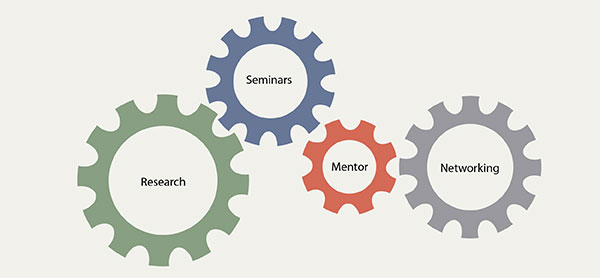You’ve seen the shows on TV – looks easy enough. Your brother has a friend doing it – he’s killing it. You’ve saved up a little money and you want to do it too – house flipping. So where to begin? Research and education is always the best path before embarking on any venture, especially where your money, time and energy are on the line.
There is no shortage of classes, courses, and training for the would-be house flipper. Which is right for you? Buying and renovating a property and realizing a profit requires you know how and where to buy a good property, how to quickly estimate repair costs, and a good team on your side. Below are some areas to consider. Chose a direction that works best for you, your pocketbook, and time frame.
Seminars
Look to your left (or right) and you can easily find free or low-cost seminars that are geared to fan the flames of your house flipping desire. But you can’t learn all the complexities of real estate investing in three days and the real estate gurus that head up the seminars are salesmen, first and foremost. They make their money on the up-sell of more expensive and extensive training that usually begins at tens of thousands of dollars. If you have the money to spend, vet the organization thoroughly. Do not rely on their website’s reviews. Look for unbiased reviews. Oh, and it would be nice if these expensive programs offer access to a mentor (preferably as a part of the package price).
Get Your Real Estate License
While It’s not necessary to become a realtor to flip houses – you can always partner with an established agent – but having the knowledge and access is an added advantage. For a faction of what you would pay a real estate guru, you can get your license and make money while you learn the ropes. You can take classes at your local community college or go online. Each state creates their own guidelines for issuing a real estate license. Colorado requires 160 hours or course work before sitting for the exam, Florida requires 63. You can go online to determine your area’s guide lines.
Read a Book. Or Two. Or Three.
There are as many, or more, books on real estate investing that appeal to the novice and pro. Financial Wolves 2019 blog post lists the top-best books on flipping houses. Number two on the list is J. Scott’s The Book on Flipping Houses: How to Buy, Rehab, and Resell Residential Properties. This book is in it’s second printing and published by Bigger Pockets.
Even if you decide to go through an expensive program, it is a good idea to have a working knowledge of what will be covered.
Find a Mentor
Some mentors will charge you, others you cultivate. If you decide paying for access is a cleaner transaction, then vet the mentor and make sure he or she is current and has a successful history in real estate investment in your area. Get references and look for reviews.
Obviously cultivating a relationship with a successful investor is going to be harder. The Bigger Pockets post “How to Get a Mentor for Flipping Houses in 3 Simple Steps” recommends:
1. Get Educated,
2. Hustle (don’t wait to be fed info, have ideas and a direction),
3. Give Them What They Want (which means “do not come to the table empty handed”).
Network
There are many real estate investment groups you can plug yourself into. Find one in your area that fits your personality. Start with Facebook and Meetup. Log on to FaceBook and locate house flipper groups in your area. Join Meetup and connect with other house flippers in your area. Once you have joined a local group, you will find similar groups.



